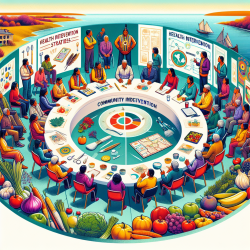Introduction
Food insecurity is a pressing issue that affects millions of households with children in the United States. According to the Early Childhood Longitudinal Study—Kindergarten Cohort (ECLS-K), food insecurity is associated with various developmental outcomes in children, including behavioral problems. This blog explores the findings of a study titled Household Food Insecurity and Children's Behaviour Problems: New Evidence from a Trajectories-Based Study, which examines the association between household food insecurity and children's behavior problems over time.
Research Overview
The study utilized data from the ECLS-K, a nationally representative study that followed 7,348 children from kindergarten to fifth grade. It aimed to investigate whether long-term patterns of food insecurity impact the developmental trajectories of children's externalizing (e.g., aggression) and internalizing (e.g., sadness) behavior problems.
Key Findings
Contrary to the hypothesis that long-term food insecurity would be associated with increased behavior problems, the study found that food insecurity generally did not affect the developmental change in children's behavior problems. However, certain developmental stages, such as third and fifth grades, appeared more sensitive to food insecurity, particularly for internalizing behaviors.
Implications for Practitioners
For practitioners working with children, these findings highlight the importance of monitoring behavior problems at specific developmental stages. Here are some actionable insights:
- Early Intervention: Addressing behavior problems early in childhood can prevent long-term academic and social challenges.
- Targeted Support: Focus on children experiencing food insecurity during critical developmental stages, such as third and fifth grades.
- Comprehensive Approach: Combine nutritional support with behavioral interventions to address the multifaceted impacts of food insecurity.
Encouraging Further Research
While this study provides valuable insights, it also underscores the need for further research to understand the nuanced relationship between food insecurity and child development. Future studies should explore the dynamic interactions between household economic conditions and developmental outcomes.
Conclusion
Understanding the impact of food insecurity on children's behavior is crucial for developing effective interventions. Practitioners are encouraged to consider these findings in their work and to stay informed about ongoing research in this area.
To read the original research paper, please follow this link: Household Food Insecurity and Children's Behaviour Problems: New Evidence from a Trajectories-Based Study.










